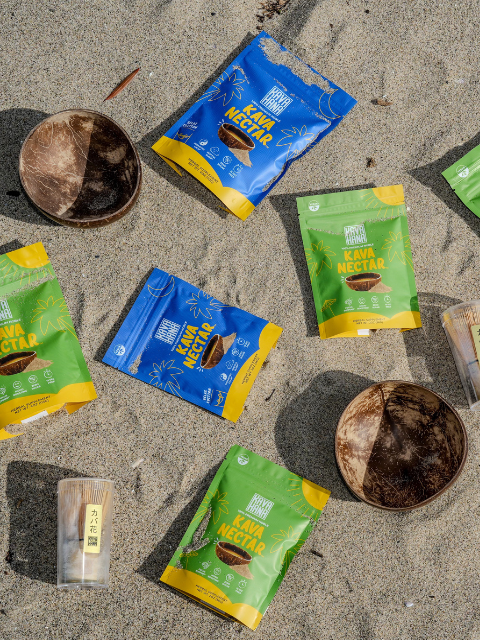Kava is a magical root. It can bring communities together for religious and celebratory occasions and has wonderful medical properties, including helping with canker sores.
Grown in the Pacific Islands, kava comes from the root of the pepper plant, Piper Methysticum. The root is harvested, dried, and ground into a powder traditionally drunk as a tea-like beverage in a coconut bowl. It is a very strong part of Pacific island culture not only for its cultural significance but also for its medicinal qualities.
What is it used for?
Kava is best known for acting on the central nervous system, the CNS (which includes the brain and spinal cord). These promote feelings of calm and relaxation that decrease anxiety and depression symptoms. Research shows that it significantly decreases feelings of anxiety and may even work better than anxiety medications.
Traditionally, however, kava has been used for many other things. For example:
- Urinary conditions
- Reproductive and women’s health
- Gastrointestinal upsets
- Respiratory ailments like asthma, coughs, and tuberculosis
- As an analgesic for skin issues and topical wounds
Due to the anecdotal nature of these findings, there is currently limited research on these conditions. However, the knowledge of these benefits is spreading, and research always follows.
One condition drawing particular attention is pain. Chronic pain is a huge issue in the United States. In 2021, 20.9% of adults reported experiencing chronic pain—that’s 51.6 million people! While some research shows kava could positively impact pain related to inflammation (a form of chronic pain), here, we are interested in discussing topical pain.
How it works
Those of you who have used kava probably remember your mouth and tongue going numb when you first drank it. This is due to the analgesic or pain-relieving properties of the active ingredients called kavalactones.
While there are many different types of kavalactones, each with its own effects, many have soothing qualities. It’s said that because we have so many nerve receptors in our mouths and lips when we take a sip of kava, the kavalactones affect those receptors, giving us a numb feeling.
In 2004, a study was presented at an annual conference of the International Association for Dental, Oral, and Craniofacial Research (IADR). The study took fresh kava root, did two rounds of kavalactones extraction (that is, using alcohol to get the active components separated from the plant), and then combined the 6% concentrated kava extract with a water-based gel. Observations of the kava gel were that it was a potent topical pain reliever. This suggests a promising treatment avenue for treating canker sores and other wounds on the skin.
What kava lovers are saying
While little research supports the claim that kava helps with canker sores, it’s hard to challenge personal experience. Some kava forums talk about making kava into a paste and placing it on canker sores for a few minutes before washing it off.
There are also reports of using kava tea as a mouthwash to help heal the sores and toothache, though there isn’t evidence behind this. It’s not a huge leap to make when considering the pain-relieving evidence and canker sores. And while you won’t find kava listed as a treatment on any of the medical websites, it sure seems to help benefit some who get canker sores more regularly.
The takeaway
While more research is needed to better understand how kava could work as a topical pain reliever, there is certainly anecdotal evidence that it could be helpful. Just remember to use room-temperature water to make your kava so it’s easy to swirl around your mouth. And be mindful of how many times you swish, as you don’t want to overdo it.


